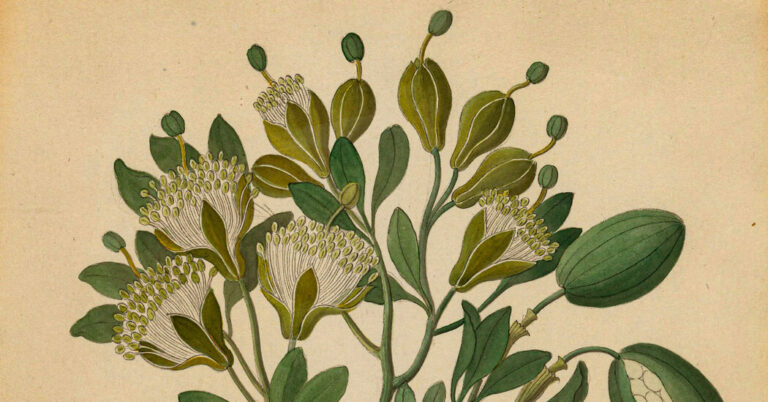In July, plant scientists at the International Botanical Congress in Madrid changed a scientific name shared by about 200 different plant species. In altering “caffra” to “affra,” the scientists claimed they were voting to fix a misspelling. But almost everyone who cast a ballot knew that “caffra” wasn’t a spelling error.
For centuries, the word “caffra” was used in the scientific names of many plants to denote that they grew in Africa. But the term is also a Latinized version of “Kaffir,” a word that, in southern Africa, is now considered an extremely offensive racial slur against Black Africans. Botanists in the region have objected to using the term to refer to African plants. In South Africa, use of the word can result in a fine or even a prison sentence.
“We owe it to ourselves to make amends that recognize the wrongs our previous generations did,” said Nigel Barker, a botanist at the University of Pretoria who was raised in South Africa during apartheid. He noted that South Africans had abandoned many official names linked to that era.
Debates over names have become increasingly frequent in science. Insect scientists have forsaken the common names “gypsy moths” and “gypsy ants” because they are derogatory to Romani people. Some researchers have argued that names honoring racists and colonizers are offensive. This led to the American Ornithological Society’s decision last year to change the common names of bird species named after people, and to NYC Audubon’s recent rebranding to NYC Bird Alliance.
But the shift to “affra” was a different moment, as the official scientific names of hundreds of species will be altered. Scientists are typically averse to changes in scientific naming because stable nomenclature is important for unambiguous communication between researchers around the world. They will usually change a name only when genetic evidence proves a species has been misnamed.
When similar concerns arose last year over animal species named after Adolf Hitler (Rochlingia hitleri, a beetle) and Benito Mussolini (Hypopta mussolinii, a moth), among others, the International Commission on Zoological Nomenclature declined to change their scientific names.
The decision to rename all “caffra” species is “the first time the botanical community has rejected a name not on scientific grounds, but for political reasons,” said Dirk Albach, the editor in chief of the scientific journal Taxon.
The “caffra” proposal passed with a vote of 351 to 205. But critics of the vote say it could set a destabilizing precedent. Sergei Mosyakin, the president of the Ukrainian Botanical Society, said there were thousands of plant species names featuring words that were or might be considered offensive to some groups of people. He pointed to examples such as “niger” (which means black in Latin) and names derived from “Hottentot” (an offensive term for the Khoekhoe people of South Africa).
“There are already appeals to get rid of any names with Hottentot, and it is just the beginning,” Dr. Mosyakin said.
Fred Barrie, a botanist at the Field Museum in Chicago and a member of the editorial committee of the International Code of Nomenclature for algae, fungi and plants, agrees that stability is important in botanical nomenclature and warns that changing thousands of species’ names will become “an unworkable nightmare.” But he believes that the “caffra” case was most likely a one-off and that botanists won’t rush to change other names soon.
But Timothy Hammer, a botanist at the University of Adelaide in Australia who was a co-author of a proposal that sought to reject all offensive plant names, plans to press the case at the next botanical congress in six years. After this year’s outcome, he is confident that other species’ names that some scientists consider offensive will be changed in the future.
One example is Hibbertia, a genus of flowering plants named after George Hibbert, an English merchant who enslaved people. Dr. Hammer believes that continuing to honor people like Hibbert is insensitive. “Why is it OK to keep these derogatory historical names?” he asked.
Dr. Hammer also said that concerns about confusion over nomenclature were exaggerated. Many names have been and will be changed for scientific reasons, he said, and the number of changes to remove culturally insensitive names — and the consequent disruption — would be small in comparison.
Dr. Barker, the botanist at the University of Pretoria, believes that the push to eliminate offensive scientific names will gain more traction among scientists from countries affected by colonialism.
“It is a real issue to many who have a history of repression,” he said.
While existing plant names may or may not be changed after the next botanical congress, a clear supermajority of voters at this year’s gathering agreed that scientific names given to plant species in the future could be rejected if they were derogatory to a group of people — but only after 2025.



